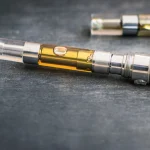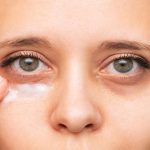Shingles, caused by the reactivation of the varicella-zoster virus (the same virus that causes chickenpox), can lead to painful skin rashes and long-term nerve pain. While shingles vaccination is highly effective in preventing this condition, it’s not suitable for everyone.
Understanding who should avoid the vaccine is just as important as knowing who should get it. In this article, we’ll explore the groups of people who should not receive the shingles vaccine, and why.
1. People with Severe Allergies
One of the main reasons someone should avoid the shingles vaccine is a history of severe allergic reactions.
The Shingrix vaccine, currently the preferred option, contains certain components like gelatin or neomycin. If someone has experienced an anaphylactic reaction to any ingredient in the vaccine, they should not receive it.
Allergic reactions can be serious and life-threatening, so it’s essential to inform your healthcare provider about any known allergies before getting vaccinated.
2. Individuals with Weakened Immune Systems (in Certain Cases)
People with compromised immune systems should approach shingles shot with caution, but it depends on the type of vaccine.
Shingrix is a non-live, recombinant vaccine and is generally considered safe for many individuals with weakened immune systems. However, medical professionals still assess the patient’s condition carefully, especially in cases such as:
- Those undergoing chemotherapy or radiation therapy
- People with advanced HIV/AIDS
- Patients who have recently received an organ transplant
- Individuals on high-dose immunosuppressive drugs
While some of these patients may benefit from the vaccine, timing and medical supervision are critical. Always consult a specialist to determine safety.
3. Pregnant Women
Pregnant women should not receive the shingles vaccine, primarily as a precautionary measure. There’s limited research on the effects of vaccination for shingles during pregnancy. Therefore, it’s recommended to wait until after childbirth to get vaccinated.
If a woman becomes pregnant after receiving the first dose of the Shingrix series, the second dose should be postponed until after delivery.
4. People with Current Shingles Infection
If someone is currently experiencing a shingles outbreak, they should delay vaccination until the condition resolves.
The vaccine is designed to prevent future outbreaks, not to treat an active infection. Receiving the vaccine while shingles symptoms are present could interfere with the immune response or cause unnecessary complications.
Once the infection has cleared and the person has fully recovered, they can discuss the best timing for vaccination with their doctor.
5. Children and Young Adults
Shingles primarily affects older adults and people with weakened immune systems. As a result, the shingles vaccine is not recommended for younger individuals.
In most countries, shingles vaccination is advised for adults aged 50 and above. Some guidelines extend eligibility to adults as young as 19 if they have specific health conditions that increase their risk.
Children, teenagers, and healthy young adults generally do not need the vaccine unless they fall into one of the higher-risk categories identified by a healthcare provider.
6. People with a Moderate or Severe Illness
Temporary illness can be a reason to postpone the shingles vaccine.
If someone is experiencing a moderate or severe illness, such as a fever, flu, or infection, it’s best to delay vaccination until they recover. This precaution helps ensure that the immune system is fully capable of responding to the vaccine and that side effects aren’t mistaken for symptoms of the illness.
Minor illnesses like a mild cold usually don’t warrant rescheduling, but it’s still wise to consult with a doctor.
7. Those Who Have Had a Severe Reaction to a Previous Dose
The shingles vaccine is typically given in two doses, spaced 2 to 6 months apart. However, if a person has a serious adverse reaction to the first dose, the second should not be administered without medical advice.
Symptoms like high fever, swelling, or severe allergic responses after the first injection warrant a review before proceeding with the next dose. A doctor can help assess whether the benefits outweigh the risks in such cases.
Conclusion
While the shingles vaccine offers strong protection and is widely recommended for older adults, it isn’t right for everyone. People with certain allergies, compromised immune systems, current infections, or specific medical conditions may need to avoid or delay vaccination.
Before getting vaccinated, it’s always best to consult your healthcare provider. They can assess your medical history, current health status, and risk factors to determine whether the shingles vaccine is appropriate for you.
Being informed about who should not get the shingles vaccine helps ensure safety and encourages responsible, personalized healthcare decisions.




















